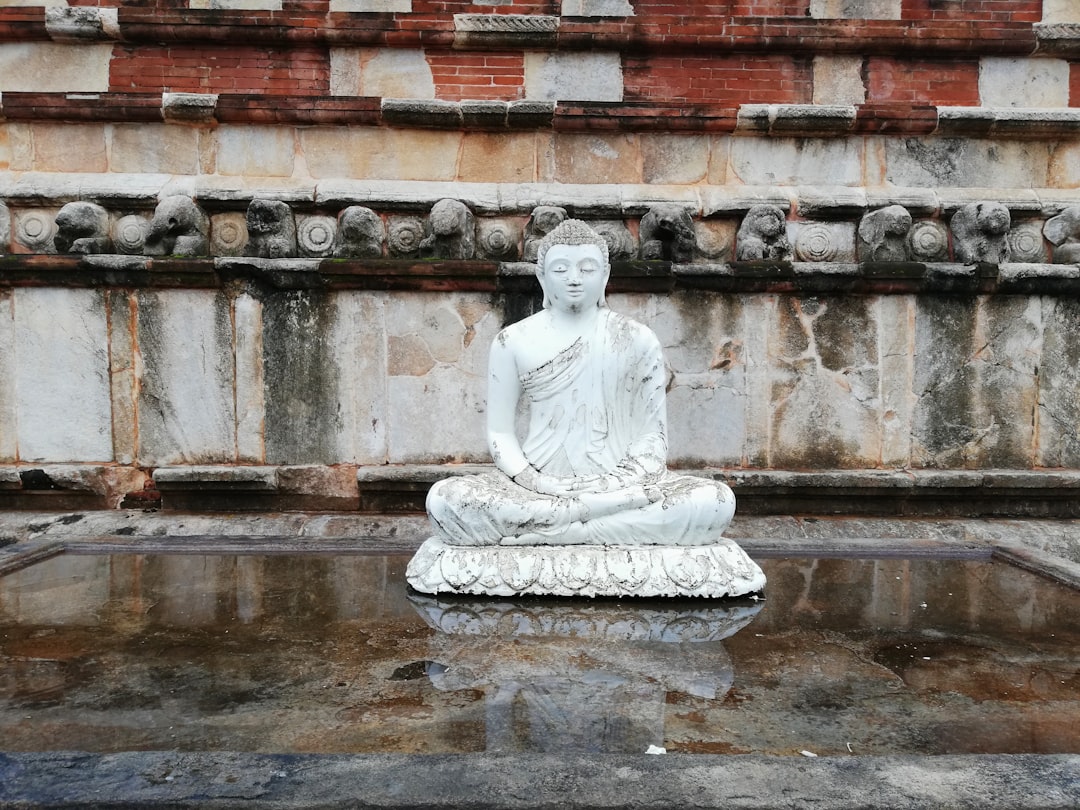Meditation is a practice that has been around for a very long time and has been scientifically proven to improve mood disorders such as anxiety or depression. Learning to meditate is an easy and inexpensive solution to reduce stress. Furthermore, for sleep, learning how to meditate before bed can change your life.
There are already many people in the Western world who have decided to incorporate meditation techniques into their daily lives. Scientific studies have been evident in this regard and offer very encouraging results, so who will resist practicing meditation with so many proven benefits?
Brain activity studies after meditation have proven that indeed there are changes at the chemical level. These changes are related to chemicals that help us balance, relax and experience more positive and hopeful feelings. The strengthening of health is involved in the changes that meditation generates in our brain chemistry.
So it is not surprising that there is a direct relationship between wellness and meditation. It has been found to benefit the immune system, the heart, and the potential for emotion management. And, before going to sleep, what are the benefits? We anticipate that the quality of your rest will improve considerably.
If you have trouble sleeping, meditation is a great idea, being the best time to meditate at a time when nothing can disturb you. You can turn off the light and breathe deeply for about 10 to 15 minutes, knowing that you are doing something good for yourself and that it is a time just for you. Read on to learn how to meditate before bed.
Before Meditation For Sleep: Preparation

Before meditating, you must be prepared, that is, with the right clothes, the place chosen for meditation, and, above all, never do it on a full stomach, especially if after meditating you plan to go to sleep because it will be difficult to fall asleep, even though you have meditated. Consider some relaxing activities before bed to help you and learn how coffee and anxiety interact.
Make sure that the place where you are going to meditate is not going to produce any noise. It is advisable to lower the blinds, close the door, turn off the cell phone to be in complete silence, and meditate properly.
It is essential to know that, if you are starting, 10 or 15 minutes will be enough. It is not necessary to stay 4 hours as if you were a Hindu yogi. Little by little, you will be able to extend the time for meditation. Another tip is to check the posture to be taken when meditating. First, and if you do not have too much flexibility, you should not cross your legs one on top of the other. It will be enough to adopt a comfortable posture that does not prevent us from concentrating when meditating.
Set a Meditation Routine
There is no excuse not to meditate. It brings many benefits to our health and will only take a few minutes a day. The first step is to try to introduce meditation in our daily life. The idea is to try to set aside time each day to meditate and try to fulfill it. Don't worry if one day you skip meditation, but try to be consistent to make meditation a routine.
Suppose we put too much pressure on ourselves and "force" ourselves to meditate without feeling like it. In that case, the meditation exercise will most likely not go well, especially if we are beginners. Since we will be more concerned about meditating, we are not trained because we have forced ourselves to do it rather than doing the meditation exercise itself. So, set yourself a goal, but without pressure.
Choose The Right Place to Meditate
Luckily, it does not require significant requirements. We can meditate anywhere that is quiet and where there are no disturbing noises.
Avoid all distractions, turn off the TV, turn off the cell phone, and ask them not to disturb you during the meditation exercise if there are other people in the house. When you start meditating, you can spend 10 minutes a day, and as you gain experience, you can increase the time you spend meditating.
It is unnecessary to acquire the lotus position. We can sit with our knees crossed, sit on a chair, on a special bench for meditation, or even lie down. It is necessary to choose a comfortable position that allows us to relax. On the other hand, we can play special music for meditation or ambient sounds that simulate that we are on a beach or in the middle of nature.
Wear Comfortable Clothes
We should choose comfortable clothes that allow us to relax our whole body, for example, sports clothes, as long as they are not too tight. You can also do it with the comfortable clothes you have at home.
It can be baggy style pants or even sweatpants, as long as our clothing allows us to be comfortable in any posture we take when meditating. Nothing should disturb our concentration when meditating, not even something as simple as clothing.
How to Meditate Before Bed: 5 Meditation in Bed Techniques

Whether you're new to meditation or not, the forms of meditation that are best to practice in bed or an hour before bed are a plenty. Here are just some the ideal types of meditation practice you can try to help you unwind and get some restorative sleep.
Mindful Breathing
Mindful breathing exercises focus attention on our breathing. By doing so, all the worries you may have in mind are gradually lost. Concentrate all your attention on the breath, on the inhalation, and exhalation. You can mentally say to yourself, "breathe in, breathe out." Breathe deeply. You should try to keep your mind blank, and if at any time you notice that thoughts interrupt your meditation, return your focus to the breath.
At first, you may find it a challenging exercise, as it is easy to get distracted. Meditation takes a lot of practice, but over time it will become easier and more manageable.
Glossolalia
This meditation exercise consists of repeating several times a word you do not know. Before going to bed, sit comfortably and for 10 minutes repeat some syllables like le-le-le or mu-mu-mu in a monotonous way until your mind leads you to new sounds. The only important thing is that it does not belong to a language. Practice meditation daily before going to sleep, and you will see that you reach a deeper sleep.
Body Awareness / Body Scan
This technique, when you are lying down before going to sleep, think about your body. Breathe slowly and focus your attention on each part of your body, starting with your head and slowly moving down to your feet. Feel the full weight of your body on top of the bed and let it sink into the bed. Do this until you fall asleep.
Identifying Blockages
Before going to sleep, breathe calmly and try to let your mind go blank. You probably have specific thoughts that come back again and again to your mind. Identify what they are, observe them, and without going deeper into them, let them pass. You can imagine that you take that idea in your hands and push it away from you. The important thing is to learn to identify the worries that do not let you rest and let them go.
Guided Meditation
Guided mindfulness meditation is common in wellness centers and yoga classes; however, since we're meditating before bedtime, the best meditation apps are our best ally. We recommend our own, Declutter The Mind, a free guided meditation app that will help you fall asleep at night. Any guided meditation for sleep practice should help! Whether you meditate while lying in bed or use guided sleep meditations before bed, meditation can help with sleep hygiene and calm your mind for sleep.
Benefits of Meditating in Bed

Improve Sleep Latency and Fall Asleep Faster
Struggling to fall asleep quickly after you close your eyes at night? Sleep meditation techniques such as a simple body scan meditation can reduce the time you fall asleep by helping calm the mind and bring your wandering mind back to the present and allowing you to drift off to sleep.
More Restful High Quality Sleep
The practice of meditation helps us calm our minds and silence the turmoil often produced by our thoughts. It induces a state of relaxation that promotes restful sleep. Thanks to the fact that with breathing and concentration, we alleviate the mental turmoil. We will also reduce the occurrence of nightmares, insomnia, and waking up in the middle of the night with anxiety.
Having a more restful sleep means a good night's rest where we wake up energized and focused to take on the day. Significantly improved sleep quality means you're not sleep walking through your day, and you're able to be your full awake self.
Avoiding Cardiovascular Complications
Statistics show that most heart attacks occur mainly in the morning. A study conducted by the Medical College of Wisconsin found that people who meditated before going to sleep reduced their risk of suffering a heart attack by up to 50%. It was concluded that meditation helped lower blood pressure and prevented hypertension. This is certainly something to take very seriously.
Start the Morning with Energy and a Good Mood
Meditation activates brain areas that are reward areas, and this is how we generate more positive responses. This chemical change at the brain level leads us to wake up in a better mood and see things from a much more positive perspective, bringing a more excellent value to our experiences. These happiness hormones, such as dopamine, serotonin, and endorphins, are activated by the relaxation, and calm meditation generates. So it is not surprising that when we wake up, we see life more optimistically.
Stimulates Concentration
We take to bed with us the problems and worries of the whole day. This generates thoughts that keep us from being able to rest. Thus, it is impossible to concentrate on what we need at that moment, which is to sleep. By meditating before going to bed, we exercise our concentration to focus on the things we have to do the next day. We give ourselves a break to continue with the day for the next day, managing to focus our attention on what we have left to do, without extra stress, which our mind gives us.
Get Better Sleep with Meditation for Sleep
As we have said, we take to bed everything that has arisen during the day to think about everything we have to do, focusing on the future. By meditating at this time, we can observe everything that worries us and see it with less anxiety to be able to give it a solution when it corresponds. In this state in which we manage to calm our mind, it appears a state of peace that makes us better manage our emotions and be more aware of them. This is a significant step to start sleeping with a pleasant feeling of profound well-being.
In conclusion, learning how to meditate before bed offers benefits that bring us to adopt the attitude we need before going to bed. A state of calm, well-being, and commitment to our recovery and our rest. Because a good rest influences us in all aspects of our life, so it is necessary to take care of it.







